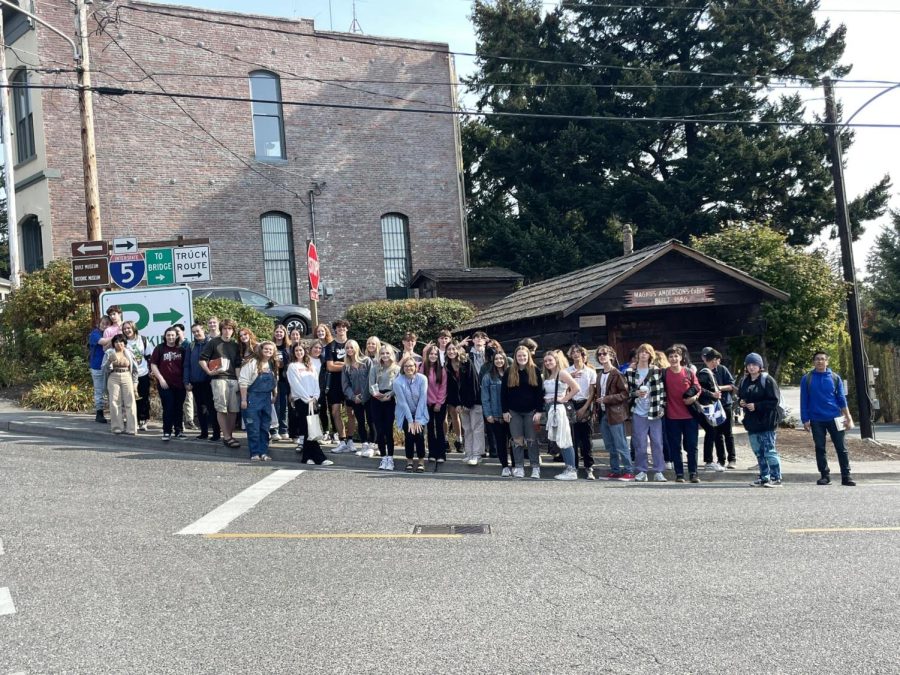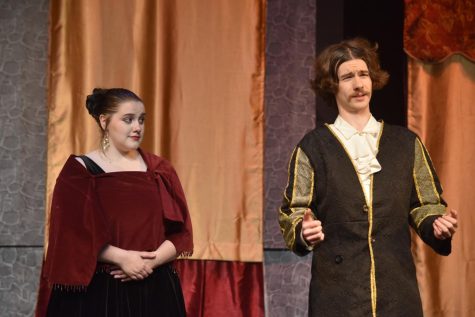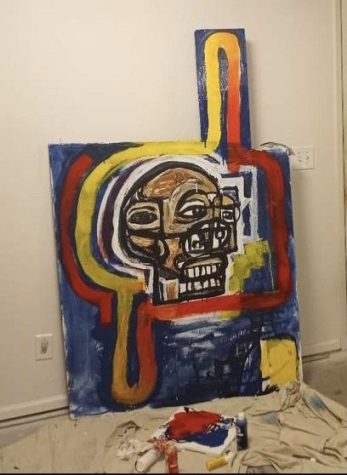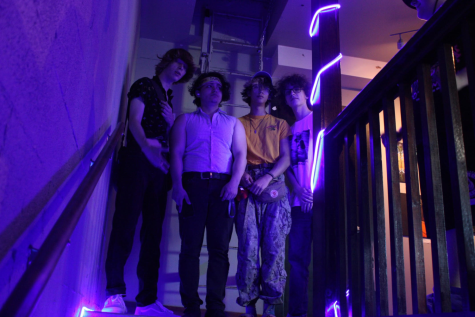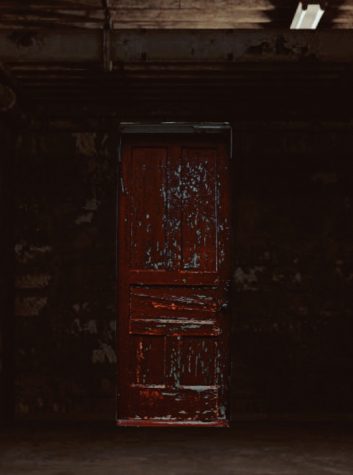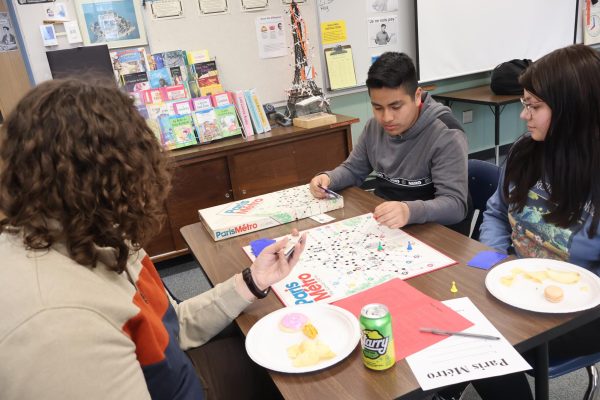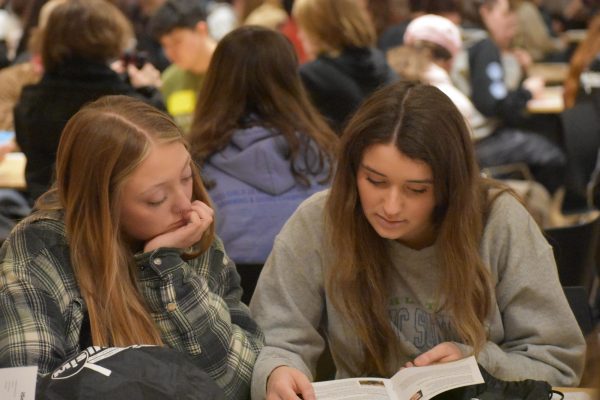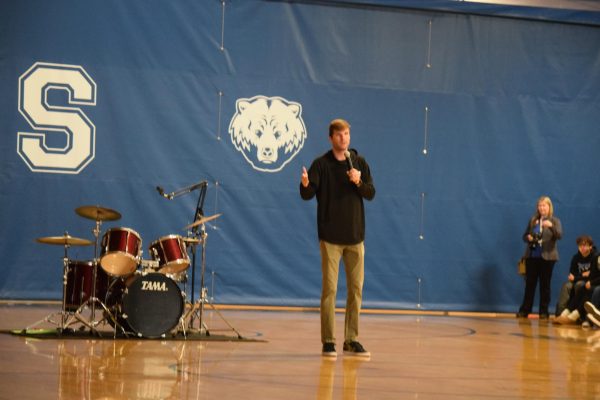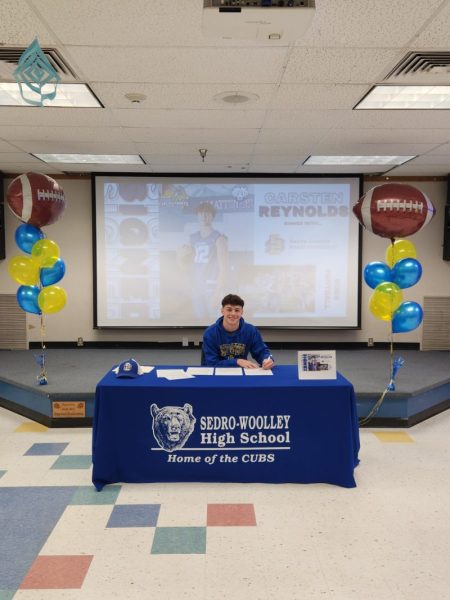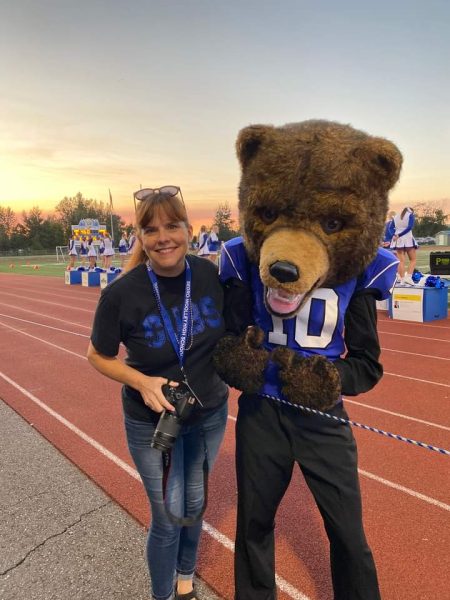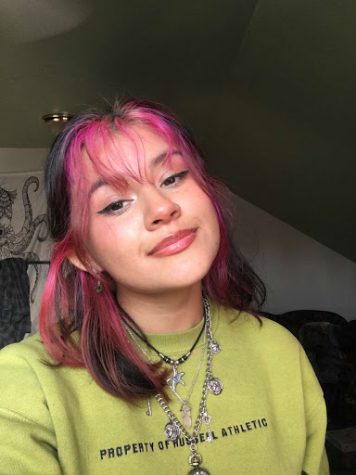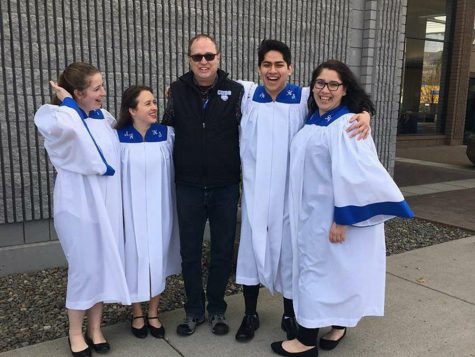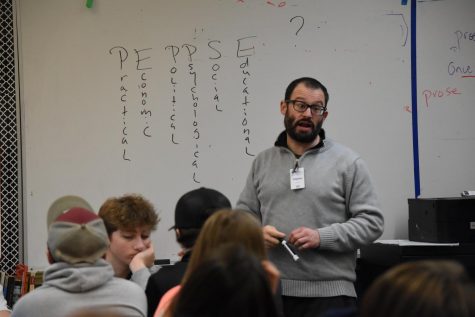Poetry Festival in Laconner Inspires Students, Educators, and Poets.
The salty smell of seawater hung in the morning air as students, teachers and poets converged in La Conner for the Skagit River Poetry Festival.
On Friday October 7th, dozens of students from Sedro-Woolley High School spent their day reading, listening and in some cases, writing poetry.
“I love poetry and wanted to expand my knowledge of poetry, and I wanted creative advice on how to start writing more,” said Sammie Wilder, a junior from Sedro-Woolley High School, explaining why she chose to go to the festival.
The festival was organized into workshop’s usually led by two or more poets from across the nation and even from other countries. Workshop topics varied from lessons in writing narrative poetry to teaching syntax and rhyme schemes.
“Basically the whole workshop was on memory. Especially history in poetry,” said Josh Werner, a senior from Sedro-Woolley High School who went to the workshop “On Memory and Forgetting,” and focused on how poems can act as memories for individuals and communities.
Some examples of workshops offered throughout the day were Writing to Change the World, Going Public with Private Feelings, How Poetry Helps Us Live Our Lives, Telling Your Story: Narrative Poetry, and North American Pastoral. The latter two I went to myself. The festival has been held biennially since 1998 and is organized by the Skagit River Poetry Foundation.
“The major mission of the Skagit River Poetry Foundation is to bring diverse poetry voices to our community,” said Molly McNulty, the Executive Director of the foundation. “We believe that poetry can open eyes and hearts. We do this by teaching, writing, and performing poetry,” McNulty said.
While the festival was inspirational to students, the Skagit River Poetry Festival was also inspirational for educators.”
As I sat in on the many poets reading their poems at the festival, I felt empowered by the emotions poetry elicits in us all,” said Windy Hindman, the English teacher who took us all on this wonderful field trip.
After our “American Pastoral” workshop, I had the amazing opportunity to interview the award-winning poet Clemens, Clem, Starck. Starck’s poetry emphasizes the beauty in our everyday lives, and, he says, he has been influenced by poetry from across space and time. As a child, his two favorite passions were reading and making models, and he realized that poetry could be a combination of both.
“So I discovered in trying to write poems, that making a poem was very much like making a model. It’s a little model of experience of what I was trying to put into words, so I became absolutely hooked on writing poems. They were these little contractions, little constructions made of words, and it really has been the focus of my life,” Starck said as part of his answer to the all-encompassing question of what poetry means to him.
They were these little contractions, little constructions made of words, and it really has been the focus of my life,” Starck said as part of his answer to the all-encompassing question of what poetry means to him. To Starck, poetry can be a carefully constructed model that relates his own experiences and perspective, but the poetry he read to us felt just as much like beautiful paintings.
“I really like the imagery of poetry. It’s really fun to create a scene inside of your head. It’s good to interpret the meanings too, but I don’t really like doing that as much as more so like projecting that image that the poet tries to get through my head,” said Werner.
“Poetry is the sun, the moon, the clouds, the landscape, and the freedom that comes from being willing to venture out and experience new concepts,” said Hindman.
From structures, to images, to any device one can devise, poetry can take on different metaphors for everyone who writes or reads it, but it is always an expression by the artist who writes it. Nomatter if it is a structure, image, or any other metaphor. After the festival, students took home new inspiration for writing their own poetry.
“I have a lot of ideas to write about,” said Werner when asked if the festival inspired him to write his own poetry.
“I would write about my own experiences and nature,” said Wilder when asked what she would write about after the festival.
When I asked Starck what his advice would be to young poets he said, “The main thing I would say is read. Read and find what you love, and find what appeals to you.”
Starck went on to explain how miraculous it is that we, humankind, have the ability to express our experiences in words.
“The fact that you and I are sitting here talking to each other. Total miracle. To express that, in words; then you need help in doing that. What I did was find like minded people. Like minded writers. Like my friends of course. Read, Read, Read.”

